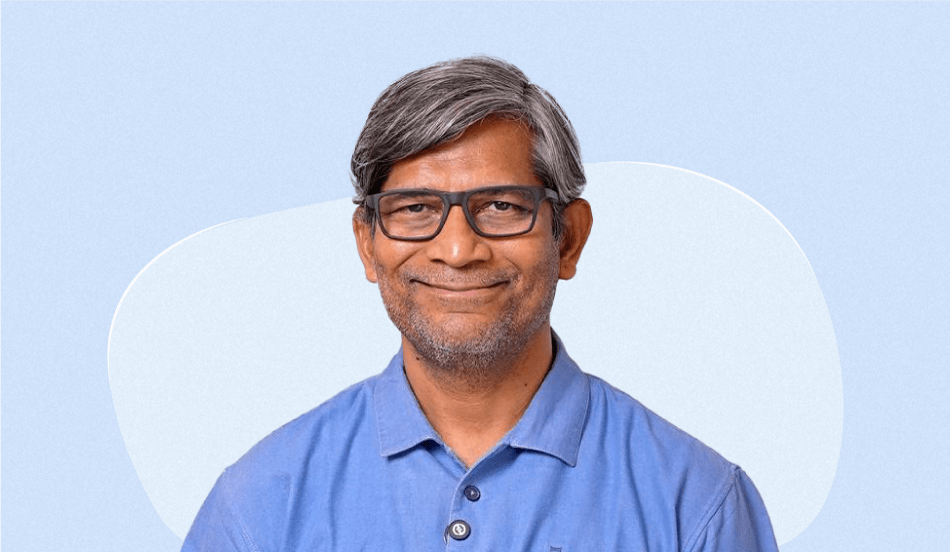How patient execution beats aggressive capital

This piece was guest-authored by Kumar Vembu, co-founder of Zoho (AdventNet), and founder and CEO of Mudhal Partners. At Zoho, he shaped the company’s early SaaS journey and has dedicated his career to building customer-first software and scaling businesses without external funding. He is an angel investor, coach, and an advocate for happiness-driven workplace culture.
Lessons from Zoho as we celebrate its success with the Government of India
I’ve been wanting to write this for three days, waiting for my excitement to settle and dealing with some personal matters. But I can’t wait any longer to share my thoughts.
I am incredibly proud to see that the Hon’ble Minister for Railways, Information & Broadcasting, Electronics & Information Technology, Shri. Ashwini Vaishnaw and Minister of Education, Shri. Dharmendra Pradhan, have announced their decision to adopt Zoho for government use and their personal productivity needs.
Zoho was founded with an ambitious vision: to build a global technology brand from India and reduce our nation’s dependence on foreign technologies. Today, we’ve achieved a major milestone toward that vision, in the most meaningful way possible. While we all know there is a long way to go, it’s a moment to look back and celebrate how far we have come.
As we celebrate this moment, I want to congratulate the entire team for their commitment to the cause, focused execution, and sincere hard work. My salute to the leadership of Zoho for its long-range vision and sustained, patient execution.
Special recognition goes to the leadership team of Sridhar, Shailesh, Radha, Tony, Rajesh, Mani, and other key leaders who have demonstrated unwavering conviction, relentless pursuit of excellence, and patient capital allocation, even when B2B SaaS products increasingly became more capital-intensive and required longer paths to profitability.
Looking back, several lessons from Zoho’s journey stand out. Lessons that I believe apply broadly to entrepreneurs building for the long term. While I stepped away from Zoho nearly 20 years ago, these foundational principles shaped our early journey and clearly continued to guide the company’s remarkable growth.
Start small, and pace yourself for the marathon. Every product in Zoho started with a handful of people and expanded as the product gained market traction.
Build a minimum viable but a solid starting point product with the must-have features targeted at the tiny and small customer. As you move up in the size of customer and complexity of customer needs, never forget to serve the tiny first customer well. While most Zoho products are ready to serve the enterprise today, they all started by serving the tiny and small customer.
Stay invested for a long time, if the market exists. Continuous progress and sustained investment always pay off. Patience is always rewarded with opportunities. The Jack Welch practice of each business unit having to be the #1 or #2 player in its market, or be fixed, sold, or closed, was never practiced at Zoho.
Study the market leaders closely, but compete on your own terms. Understanding what makes the best companies successful helps set your standards, while building your unique approach. Competing with the best always energises the team with what’s ahead of them.
Continuously expand your solution to solve more customer problems. Focus on increasing customer lifetime value through comprehensive offerings to upsell and cross sell rather than constantly acquiring new customers. Zoho and ManageEngine each have evolved from one one-point tool to a 60+ suite of solutions and, most importantly, a platform over these years.
Pricing is key to success. Be the most efficient vendor and pass on the benefits of efficiency to the customers. Sam Walton’s 'pile high and sell low' applies to every category and industry.
Develop strong conviction in your direction, but stay open to feedback and continuous improvement. In a world full of distractions and daily noise about competitors and funding, belief in your own vision is essential.
Most importantly, people are your most important asset. Invest in people for the long term. It’s easier when you hire freshers and provide them with growth opportunities.
The age-old wisdom that cash flow is king should never be forgotten. Having a strong runway provides freedom, flexibility, and the psychological safety to make courageous, long-term decisions.
Develop an ownership mindset in your team and give them complete freedom to make decisions with accountability. Encourage an intrapreneurial culture where decisions are made at the lowest levels possible. This reinforces ownership while freeing leadership to focus on strategic initiatives to keep the engines of growth humming.
As I celebrate this milestone as a Zoho co-founder, I’m also energized to engage more deeply with India’s startup ecosystem, particularly with founders who believe in building for the long term. I’m confident that in my next 10–15 active years, I’ll have the privilege of being part of more companies that achieve similar impact.
To me, Zoho’s success story proves an ancient Tamil wisdom
முயலும் வெல்லும் (the hare can win)
ஆமையும் வெல்லும் (the tortoise can also win)
முயலாமை என்றுமே வெல்லாது (but not trying never wins)
And it embodies this verse from Thirukkural, the ancient Tamil text:
தெய்வத்தான் ஆகா தெனினும் முயற்சிதன்
மெய்வருத்தக் கூலி தரும்.
(Meaning, even if destiny seems against you, sincere effort will reward your perseverance)
Zoho’s success is the success of everyone who tries and perseveres.
Thank you to each and every member of team Zoho for making all of us proud, for energising me and for helping me learn so much in this journey. Wish you all the very best.
.png)



